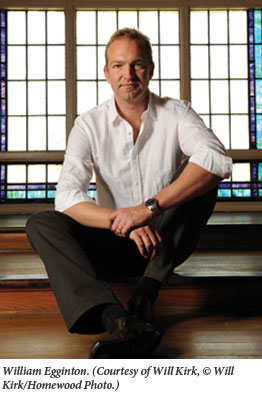Sincere Irony
Two days after airplanes slammed into the twin towers, Graydon Carter, the editor of Vanity Fair, solemnly declared, “It is the end of the age of irony.” Less than a week later, with his tongue back in his cheek, Carter explained that what he had meant to say was that it was the end of the age of ironing.
The Talmud has an expression for this: “He prophesied but did not know what he prophesied.” Whatever may have been going through Carter’s head, his original observation was important. During the 1990s, it had been clear that irony was in. Those in the know understood that there was nothing to know. Their philosopher was Richard Rorty (and Jerry Seinfeld was their comedian).
 But on 9/11, the reality of fanaticism crashed headlong into irony. To many who had lost the habit of taking anything at all seriously, it suddenly seemed imperative to develop a better intellectual defense of what they held dear. The “New Atheists” appeared on the scene and renewed with a vengeance the debate between faith and reason, so long dismissed as a relic from a previous age. And conservative defenders of religion responded in kind.
But on 9/11, the reality of fanaticism crashed headlong into irony. To many who had lost the habit of taking anything at all seriously, it suddenly seemed imperative to develop a better intellectual defense of what they held dear. The “New Atheists” appeared on the scene and renewed with a vengeance the debate between faith and reason, so long dismissed as a relic from a previous age. And conservative defenders of religion responded in kind.
Now William Egginton, who studied under Rorty and teaches at Johns Hopkins University, has entered the fray with his timely new book In Defense of Religious Moderation. Like the New Atheists, Egginton wants to fight fanaticism, but he wishes to do so without displaying the kind of close-mindedness that he believes is no less characteristic of religion’s fiercest opponents than it is of the most dangerous fundamentalists. What the opposing camps share, he argues, is the belief that it is possible to attain absolute truth through a “code of codes.” By this he means “the implicit and mostly unacknowledged belief that beyond the veil of how the world appears to us here and now, there is a deeper reality on which our lived reality is based, and most important, this deeper reality encodes our own.” That is, it “consists of a potentially readable set of instructions for producing the physical reality in which we live.”
The only difference between religious extremists and the New Atheists, Egginton claims, is the tool they use to unlock the “code of codes.” While the former resort to sacred texts, the latter have recourse to science. What he fears most is the way in which the members of both camps adopt an intolerant and hostile attitude towards those who do not share their convictions.
Egginton contrasts religious fundamentalists with those he finds quite acceptable: religious moderates. What distinguishes the two, he explains, is “not so much “what they believe” but “how they believe.” Devoid of the “epistemological arrogance” that characterizes fundamentalists, religious moderates believe that no “code of codes” exists and that “human knowledge is essentially incapable of grasping everything.” They possess “epistemological humility.” Unsure that their convictions are truer than anyone else’s, religious moderates are led by their uncertain faith to be peaceful and tolerant of religious differences. One might think of them as sincere ironists.
For Egginton, the quintessential religious moderate is Immanuel Kant, who denied the possibility of theoretical knowledge of metaphysical truth and posited an unknowable “thing in itself.” As Kant famously wrote, he had to “deny knowledge in order to make room for faith.” In Egginton’s opinion, it was Kant’s metaphysical agnosticism that made him a religious moderate, tolerant of the viewpoints of others.
To his credit, Egginton confesses that he is not a scholar of religion, even noting that “since I am a scholar of literature, it’s often not obvious to people I talk to why I am writing a book about religion.” Indeed, one often gets the feeling that Egginton wants to transcend the messiness of particular religions by speaking of religion in general. As he puts it, “though I defend a certain kind of religious belief on philosophical grounds, I certainly do not base that defense on the doctrine of any particular religion.” It seems fair to ask what religious belief is apart from any particular religion. In this case, Egginton is taking his bearings from popular scholar Karen Armstrong.
Following Armstrong, Egginton notes that “most if not all the faiths that are widely practiced today originated in what she calls, following Karl Jaspers, the axial age, the time between more or less 900 and 200 B.C.E.” The foundational belief of all religions formed in this age was that “however we conceive the world, no human can ever be understood as having the final word: knowledge is an infinite process.” Only when they were later institutionalized did religions develop fixed dogmas.
Egginton claims that fundamentalism, a modern phenomenon, arose as an attempt to defend religious beliefs in the “logocentric terms” laid out by modern science by taking statements in sacred texts as literal descriptions of reality. Nevertheless, despite the institutionalization of religious dogma, the original beliefs from the axial period continued to persist among select religious thinkers. Egginton points to the 17th-century Christian thinker Isidore of Seville who taught that “God can be spoken of only by metaphor or analogy for we know only his traces,” and the 12th-century Jewish thinker Moses Maimonides, for whom “God is a name for a totality, for something ungraspable, for a creative force that cannot be tamed by the human intellect.”
What ought to be said in objection to this history of religion needn’t be said here. But it must be observed that Egginton is on very shaky ground when he links the “epistemological arrogance” of the New Atheists with intolerance and violence by pointing to “the aggression with which they push their agendas.” Pugnaciously arguing for atheism is nothing like suicide-bombing innocent civilians. And Egginton’s converse claim that “epistemological humility” always promotes tolerance and religious moderation is no more plausible.
Egginton correctly notes that Kant was epistemologically “humble” in denying that we could know reality in itself and that theoretical reason could prove God’s existence. But there is no reason to think that Kant’s commitment to respecting others as ends in themselves and his defense of freedom of thought and speech derived from this epistemological “humility.” Rather, they stemmed from his affirmation of the categorical moral imperative, which was as an absolute demand of reason.
The weakness of the link between “epistemological humility” and tolerance and respect for others is even more apparent when we look at Maimonides, Egginton’s Jewish hero. His epistemological humility in many ways outstrips Kant’s. Not only does Maimonides think that God is fundamentally unknowable, but he also denies the existence of moral norms that are categorical demands of reason. Nevertheless, his legal writings evince astonishingly intolerant statements. Maimonides writes that one who does not perfect his intellect is not truly a human being and that a Jew without proper belief is not an Israelite but a heretic whom one is commanded to hate and even kill. Had Maimonides been less epistemologically humble, and believed, like Kant, that reason could arrive at a categorical moral imperative, he would presumably have been less open to such extreme rulings.
If Egginton needed a Jewish religious moderate to fill out his picture, he could have picked a more recent if somewhat less eminent Jewish thinker: the 18th-century philosopher Moses Mendelssohn. Mendelssohn embraced religious diversity as a good and acknowledged that religions other than his own provided legitimate avenues to salvation; he saw the aim of life as the attainment of happiness and perfection in this world and the next; he saw ethics as the most important religious demand; he considered freedom an essential part of human flourishing and rejected all forms of religious coercion.
The problem, however, from Egginton’s point of view, is that Mendelssohn was epistemologically arrogant. As a young man he won a competition held by the Berlin Academy of Sciences for an essay arguing that one could attain mathematical certainty in metaphysics. (Kant came in second place.) But it was, in fact, Mendelssohn’s lifelong adherence to the idea that there was what Egginton disparagingly labels a “code of codes” that made him a religious moderate in the first place. Since God is perfect, he reasoned, He cannot benefit from human service. Rather, He created the world in order to benefit its rational inhabitants by enabling them to achieve perfection and happiness. True service of God therefore involves the promotion of the perfection and happiness of ourselves and others. Since coerced religious acts have no value in the eyes of God, this service must be performed freely.
Mendelssohn and other religious rationalists, both Jewish and non-Jewish, demonstrate very clearly that what Egginton deplores as “epistemological arrogance” may prove to be the best path to religious moderation. “Epistemological humility,” on the other hand, brings with it perils that Egginton leaves unexamined. People marked by “uncertain faith” must also be uncertain of the value of tolerance. In a political environment in which it is disadvantageous or dangerous to uphold tolerance, they may prove unwilling to defend it. Indeed, history teaches us that uncertainty about one’s ability to know absolute truth can be joined quite easily with intolerant, even fascist ideologies (think Heidegger). For one can believe in one’s inability to know absolute truth while believing at the same time that one creates truth by imposing one’s own worldview on others.
If epistemological humility cannot lead us to universal harmony, and may very well lead us very far astray, we would do well to remember voices from the rationalist past. They may still be able to offer us useful guidance in navigating between the hazards of religious fundamentalism, on the one hand, and anti-religious fundamentalism, on the other.
Suggested Reading
The Man’s Learning Moves Me
Isaac Casaubon, the Hellenist who loved Hebrew.

Atah Manhig: A Life in Reform Judaism
Lance Sussman's book of sermons are a window into Reform Judaism and a beacon of American optimism.

Harvard, SNCC, and an Antisemitic Cartoon
How did Harvard students end up using a decades old antisemitic cartoon in their anti-Israel activism?
Letters, Fall 2023
A Question of Authority It’s inaccurate and fundamentally unfair to take the words of a character in a novel and attribute them to the author. Sadly, this is what Nadia Kalman elects to do in her review of my novel, The Dissident (“Problems with Authority,” Summer 2023). Writes Kalman: This novel seems to be saying something like this: antisemitic persecutions…
Comments
You must log in to comment Log In